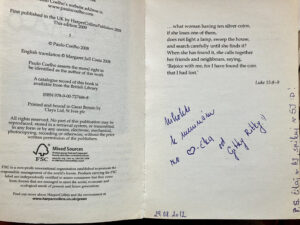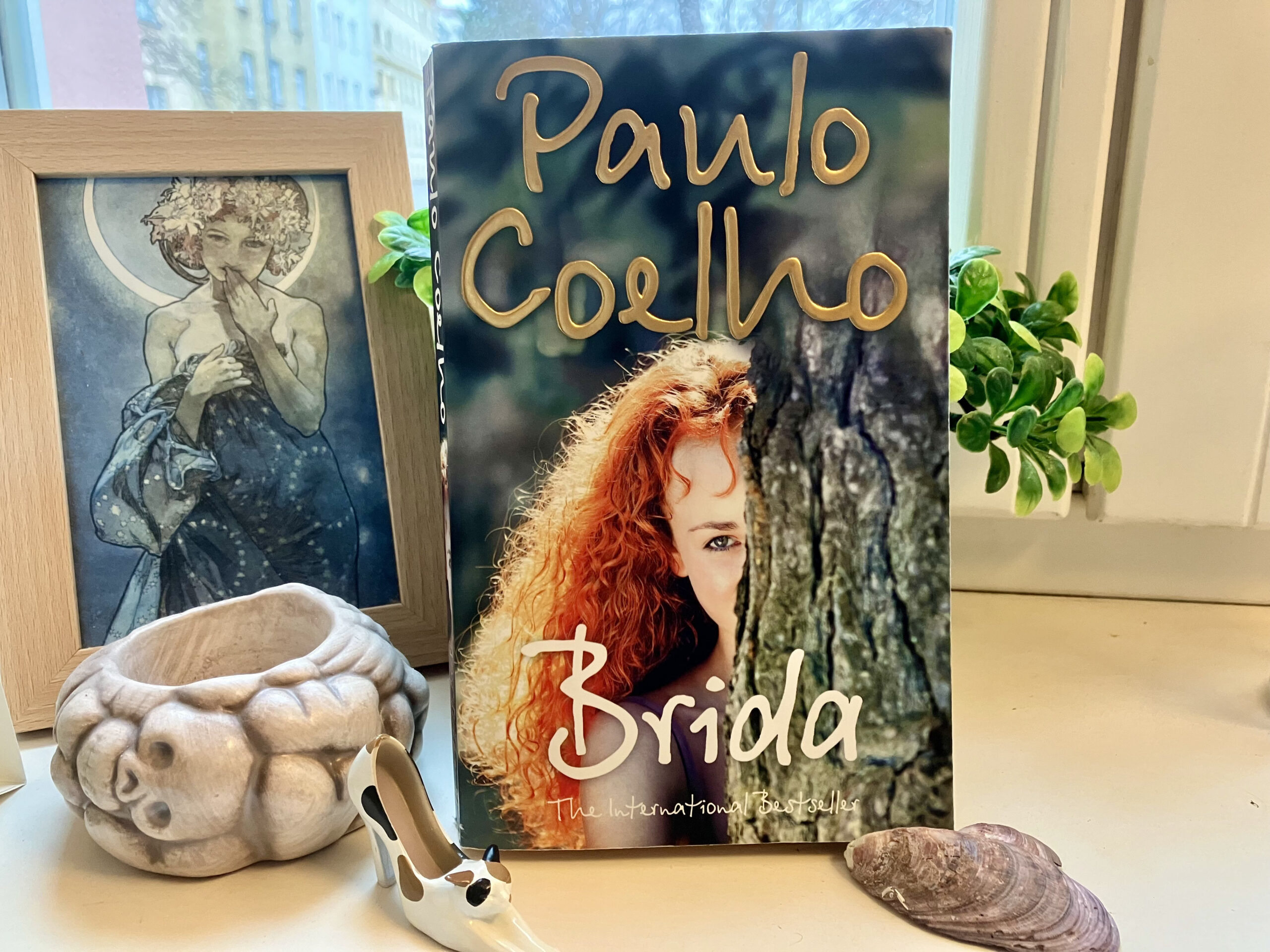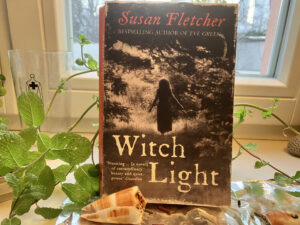“What are you good at?” asked the owner. “Going after what I believe in”. That was the only possible reply; she spent her life in pursuit of what she believed in. The only problem was that she believed in something different every day.
Based in 1980 Ireland, twenty-one-year-old Brida’s search for spiritual knowledge and wisdom will lead her to become involved with two different teachers; one who teaches the Tradition of the Sun, and one who teaches the Tradition of the Moon. She can study both, but only one can be her path.
Intrinsically linked is the matter of soulmates and love. Brida is torn between one of her teachers and her current partner, both of whom she recognises as soulmates. She is faced with the most difficult question, which one is the right one for this lifetime?
Despite always having had an interest in witchcraft and the occult, Brida struggles to find a balance between being a witch, her relationships, and the comfort of mundane routine. Facing fear openly and trusting in leaps of faith are two lessons that, for an indecisive person, are no simple task.
During her search, she will uncover the secrets of past lives and soulmates, and how to recognise the magic in the every day even after having been exposed to the other side of the veil. She will become initiated as a witch, and explore those parts of her mind that have been left dusty for centuries.
How the book found me:
I was browsing a charity shop looking to treat myself on my birthday when this book appeared. I have always loved charity shops as a place to find my next read. One, for the obvious reason that it’s a much more economical choice than buying every book brand new. Two, because old books have this very particular smell that I just love. Used books feel comfortable in the hand, and less fragile than those freshly printed. They have already been tamed and are used to the world and its people. Thirdly, they often come with little notes written in the margins and signs of wear and tear, and it’s like you’re discovering the ghost of someone through the objects that once belonged to them.

My copy of Brida, for example, has a note on the inside in a language I do not understand, but from the way it is composed and the hearts and smiley faces, I can guess that it was intended as a gift. Maybe even as a birthday gift, just as it was a birthday gift to myself. They have included a date, and it is an amazing reminder of the immortality of words. Twelve years on, and the book is still in circulation. It is not the oldest book, far from it, but it is still a slice of life that will remain unchanged despite its changing surroundings. I like to imagine the people who read it before me, and the hands it has passed through to get to mine. The unique story of my copy, and how and if it ties to the contents of its pages. I wonder who will have it after me? In 20 years? 50 years? How will the world be then, and how will this story fit with it?
What did I think?
One of the main themes of the book is the discovery of soulmates and the separation of love and passing infatuations. The way it is framed in Brida is quite an interesting concept. It is pre-destined and out of the control of those involved. Both Traditions of the Moon and Sun have their way of recognising this person, so there is no suspense in that sense. But since a soulmate is said to be the result of a being splitting into multiple atoms, or souls, upon their death, and re-incarnating as separate people, then a person will always have multiple soulmates, and there is the possibility of meeting more than one in your lifetime.
There is a hopeful message here, whether the reader believes in the concept of soulmates or not, that these two souls are inevitably drawn to each other, that they will meet again and again in multiple lives, and that one just has to be patient to find their person. That what is rightfully theirs (an old piece of themselves!) will not be kept away forever, and that there is not only one right person out there for everyone but multiple.
Another big theme of this book is that of past lives and memories. There was one flashback scene, which I will not spoil, that came as a result of Brida digging around in her mind after a lesson with her teacher of the Tradition of the Moon. She finds a library filled with old books and dust and comments about needing to come and clean in there more often. I just loved this imagery of our current and past selves being stored in a literal library within us, that you have to go and sort through now and then. Like a form of interior psychological maintenance. Reminds me of the saying ‘the body keeps the score’.
As interesting as the themes and messages of the book were, as Coelho’s messages usually are, none of the characters particularly stuck out to me. The challenges didn’t seem so big, and everyone was complacent in accepting what was happening around them. Everyone in Brida’s personal life just accepts that she is going off into the woods with strange teachers to learn pagan rituals. Her mum only comments that her daughter is on a journey unknown to her where she cannot help her. Her partner, though he grows suspicious of Brida’s waning attention, never confronts her properly about it, and seems like he would be very fast to accept her new interest in her teacher if it she says it is the right thing for her path.
There are also no real consequences. When Brida cheats, it is painted as completing a tradition or ceremony, and she seems to be unashamed and at no pains to hide it from her partner. She even invites both him and the teacher to her initiation as a witch, which is one big party, and feels dull and lifeless until the teacher arrives. In fact, throughout the whole book, Brida seems to be convincing herself of her love for her partner. He is even just introduced as some guy she sees in the first chapter. On the other hand, the teacher revives her and brings back her spark.
But, perhaps this was the point. Love is not always a burning passionate flame, it is unrealistic to expect it to stay that way. Comfort and security with someone is maybe preferable in the end, and better for the growth of self. But even that lesson seems hardly deserved since Brida is, by the end, ready to leave Lorens alone in the woods to go and run away with her teacher. She only returns to him because the ‘wise man’ of the Tradition of the Sun sees that she will be better off staying with her current partner, so she does what he says.
Brida states at one point that it seems women need men more than men need women. This is something that will come up throughout the book, the separation of men and women into the two categories of the Sun and Moon. Both are needed to complete each other, like pieces of a puzzle, and both serve a different purpose that the other would not be able to fulfill otherwise, which is why, supposedly, both sexes were created. I didn’t love this comment, and it does feel to me a bit outdated now. Despite all this, there was never a dull moment, the book has a fast pace and is written in a very digestible way. Every aha! moment and message is delivered so that it cannot be misinterpreted, it is not an overly complicated metaphorical work requiring a lot of reading between the lines to get to the meat of what the author wants to convey, making it a good pleasant read for any level.
Should you read Brida?
Yes, but (I know, very convincing start to a statement) it would not be my first choice of Coelho book to recommend to someone. It is by no means a bad book, and if you are particularly interested in the topics of witchcraft, paganism, and spirituality, then you will absolutely enjoy the discussions and world of Brida. I just didn’t feel as drawn by the world and the characters as I have been with some of Coelho’s other works, such as The Alchemist and The Witch of Portobello, both of which have left a more lasting impact on me. But I do think it has something interesting to say, despite some parts feeling a bit out there. I was entertained the whole way through and there weren’t any dull moments. So at best, you’ll get some kind of enlightenment on soulmates, at worst, you’ll just have a very enjoyable, charming read.



